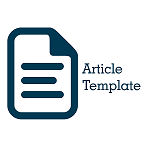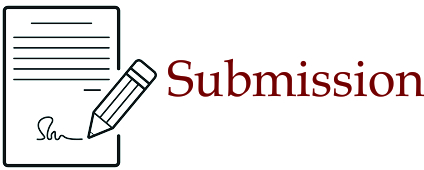The Implementation of Qauniyah Verses Based on Unification Curriculum in SMA Trensains
Abstract
The curriculum in Indonesia has been changed eleven times since 1947th. In fact, the changes that are expected to increase education globally and nationality especially in Islamic Education, have not already revolutionary era yet. As one of independently formal Islamic Education, SMA Trensains Muhammadiyah, Sragen made their own curriculum named “unification curriculum”. It has a lot of programs implemented in each variety schedule, particularly in Islamic Education. Those unique activities combine not only in theoretical things and classical methods, but also directly applicated the qauniyah verses in the Quran through the technology and learning media. The aims of this paper are to describe how the curriculum in Trensains worked and implemented the verses Quran in different ways from the others. This research uses field research with qualitative methods. Then the data analyze with descriptive ways. The results of this study showed that through the implementation of the unification curriculum in Trensains learning process between Islamic education and natural science collaborated increasing of intellectual and spiritual of students. The students more interactive and productive in integrative curriculum with qauniyah verses in Qur’an and science rather than conventional process.
Keywords
Full Text:
PDFReferences
Abidin, Z. (2017). Integrasi Islam dengan Fisika dan Kimia. Al-Afkar, 5(2).
Ajahari. (2016). Pemikiran Fazlur Rahman dan Muhammad Arkoun A. Jurnal Studi Agama Dan Masyarakat, 12(2), 232–262.
Azalia Mutammimatul Khusna, A. I. S. (2018). Pembelajaran Integratif Sains dan Al-Qur’an: Revitalisasi Nilai Ajaran Islam dan Pembentukan Karakter di SMA Trensains Sragen. Iqra’ Jurnal Kajian Ilmu Pendidikan, 3(1), 56–84.
Crabtree, S. (2010). Religiosity Highest in World’s Poorest Nations. Washington, D.C: Gallup Global Financial Health Study.
Hackett, C. (2012). The Global Religious Landscape: A Report on the Size and Distribution of the World’s Major Religious Groups as of 2010. (August 2014). https://doi.org/10.13140/2.1.4573.8884
Harahap, A. (2018). Integrasi Alquran dan Materi Pembelajaran Kurikulum Sains pada Tingkat Sekolah di Indonesia: Langkah Menuju Kurikulum Sains Berbasis Alquran. Jurnal Penelitan Medan Agama, 9(1), 21–46.
Hasanah, S. M. (2018). Brand Image Building in Islamic Higher Education. Proceeding International Conference of Islamic Education, 3, 61–68.
Hermawan. (2017). Interaksi Islam dan Sains : Studi Historis-Fenomenologis di SMA Trensains Sragen. Cakrawala: Jurnal Studi Islam, 12(2), 101–112.
Khoirudin, A. (2017). Sains Islam Berbasis Nalar Ayat-ayat Semesta. At-Ta’dib, 12(1).
Kurroti A’yun, Wildanul Fajri, S. (2018). Aktualisasi Kurikulum Terintegrasi di SMA Trensains Tebuireng Jombang. Al-Idaroh, 2(2), 24–49.
Maksudin. (2018). Integration of School and Pesantren Educational System A Model of Character Education: Perspective of Educational Transformation. International Journal on Islamic Educational Research (SKIJIER), 1(2018), 32–59.
Miles, M. B., Huberman, A. M., & Saldaña, J. (2014). Qualitative Data Analysis. Los Angeles: Sage.
Mohamad Yasin Yusuf, Sutrisno, K. (2017). Epistomologi Sains Islam Perspektif Agus Purwanto. Analisis, 17(3), 65–90.
Munadi, M. (2016). Integration of Islam and Science : Study of Two Science Pesantrens ( Trensain ) in Jombang and Sragen. 5(December).
Muslih. (2018). Pembelajaran Ayat-ayat Kawniyah di SMA Trensains 2 Pesantren Tebuireng Jombang. Islamica, 12(2), 455–480.
Mustakim, M. (2017). Transformasi Pesantren Sebagai Pusat Penyebaran Islam, Alat Revolusi dan Lembaga Pendidikan Islam. At-Tajdid: Jurnal Ilmu Tarbiyah, 6(2).
Muttaqin, A. (2018). Konstruksi Kurikulum Sains Islam Keindonesiaan (Integrasi Islam, Sains Kealaman, Sains Humaniora dan Keindonesiaan). 16(1), 80–96.
Nurmadiah. (2014). Kurikulum Pendidikan Agama Islam. Al-Afkar, 3(2).
Pew Research Center. (2012). The Global Religious Landscape. Washington, D.C: Pew Research Center’s Forum.
Priatmoko, S. (2018). Memperkuat Eksistensi Pendidikan Islam di Era 4.0. Ta’lim: Jurnal Studi Pendidikan Islam, 1(2), 221–239.
Kementerian Agama RI. (2019). Rencana Strategis Direktorat Jenderal Pendidikan Islam.
Silahudin. (2014). Kurikulum dalam Perspektif Pendidikan Islam (Antara Harapan dan Kenyataan). Mudarrisuna, 4(2), 331–355.
Stoet, G., & Geary, D. C. (2017). Students in countries with higher levels of religiosity perform lower in science and mathematics. Intelligence, 62, 71–78. https://doi.org/10.1016/j.intell.2017.03.001
Su, S. (2012). The Various Concepts of Curriculum and the Factors Involved in Curricula-making. Languange of Teaching and Research, 3(1). https://doi.org/10.4304/jltr.3.1.153-158
Yusuf, M. Y. (2015). Pesantren Sains : Epistemology of Islamic Science in Teaching System. Walisongo, 23(2), 283–310.
DOI: https://doi.org/10.18860/jmpi.v4i2.8274
Refbacks
- There are currently no refbacks.

This work is licensed under a Creative Commons Attribution-ShareAlike 4.0 International License.
Universitas Islam Negeri UIN Maulana Malik Ibrahim Malang
Jalan Gajayana 50 Malang 65144, Jawa Timur, Indonesia
Telp/Fax: +62341-552398 Email: jmpi@uin-malang.ac.id

This work is licensed under a Creative Commons Attribution-ShareAlike 4.0 International License.
INDEXED BY:
















